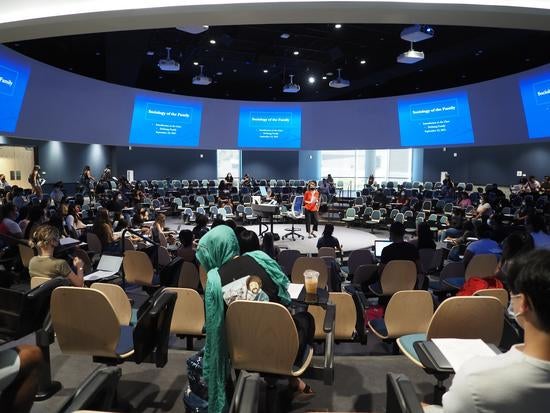About
The Provost and Executive Vice Chancellor (PEVC) is responsible for determining how campus space is allocated, including classroom space. Thus, the campus course scheduling policy also falls under the purview of the PEVC. Course scheduling should be responsive to evolving campus needs and should be informed by broad input from stakeholders.
Therefore, the PEVC relies on a Course Scheduling Committee (CSC) to foster communication and transparency, to provide a forum for concerns to be discussed and addressed, and to make recommendations to the PEVC on all aspects of course scheduling.
This includes priority scheduling, final exam scheduling, special agreements with departments that have unique scheduling needs, exceptions and changes to the campus scheduling policy, and other related issues. The CSC also works closely with the Registrar to implement the campus scheduling policy on an ongoing basis.
Course Scheduling Committee
In response to concerns about changes to the course scheduling policy for 2016-2017, the Provost has convened a workgroup chaired by Associate Provost Ken Baerenklau to identify campus concerns and provide recommendations.
Background
- Campus growth-producing excess demand for classroom space during prime hours
- The labor-intensive process to schedule classes; perceptions of inequity in the process
- Course Demand Workgroup recommended changes to the scheduling policy intended to facilitate the process and promote greater equity
- Provost approved recommended changes, registrar implemented for winter 2017 schedule
- The inherent reshuffling of classes created conflicts and frustration among faculty and department chairs
- Department chairs asked to revisit the policy again
Committee charge
- Develop recommendations to modify/improve the existing course scheduling policy, in particular, to facilitate student progress toward degree
- Consider changing class start times to top/bottom of the hour to align with administrative meeting schedules
- Identify additional scheduling issues in need of attention in the longer-term, and recommend next steps
The group has administered both a student and a faculty survey about the experience of course scheduling during this academic year. You can find summaries of those surveys under documents.

